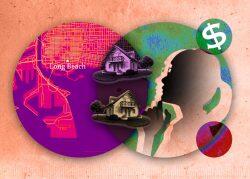California’s 44-year-old Proposition 13 gave bigger tax breaks to white homeowners than people of color, a recent study found.
The landmark amendment to the state’s constitution, meant to cap taxes and keep homes affordable as California’s population rose, benefited wealthy white owners who live where prices have increased faster, according to the study that compared Oakland neighborhoods, the Mercury News reported.
“The wealthiest neighborhoods receive the most, which helps them build more wealth for their communities that were already benefiting from lots of wealth,” Jacob Denney, co-author of the report and economic policy director at the San Francisco Bay Area Planning and Urban Research Association, which produced it along with the Tax Fairness Project.
A 2018 poll from the the Public Policy Center of California found that 57 percent of adults had a mostly positive opinion of the proposition, while 23 percent said it was mostly bad. The pandemic pushed the median home price in San Francisco to $1.75 million.
Critics say Prop 13 hands out tax breaks to those who don’t need it instead of funding schools and the government. Taxing Oakland homes at their current market value would raise $400 million a year, more than the budgets of the city’s essential services such as fire, transportation and community development.
The owner of a $9 million mansion in San Francisco’s Presidio Heights paid $5,625 in property taxes in 2020, according to the Tax Fairness Project. For the owner of a run-down $331,000 home in Richmond, the bill came to $5,240.
Homes in Oakland’s white neighborhoods are assessed at an average of almost $700,000 under their market value, compared with those in Latino neighborhoods that are under-assessed by $216,000.
“The wealthiest neighborhoods receive the most, which helps them build more wealth for their communities that were already benefiting from lots of wealth,” Denney said.
[The Mercury News] — Gabriel Poblete
Read more


